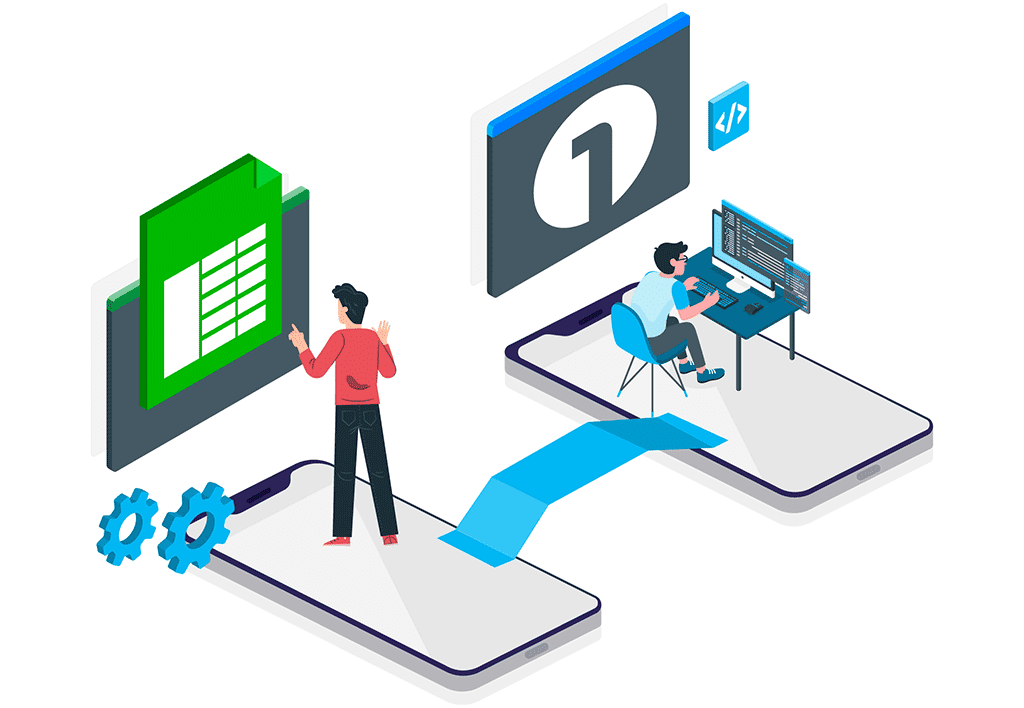Digital Transformation - How it has changed the way we work.
7 min read | Updated on Nov 9, 2022

Digital transformation is a phenomenon that continues to grow and evolve astoundingly. It’s business implications are significant, accelerating the adoption of new technologies and business processes. As we are in the fourth Industrial Revolution, businesses must adapt their strategies to remain competitive and drive value from their digital investments.
Companies are modernizing their operations and adopting new digital technologies, processes, and organizational practices. It enables organizations to respond faster to new market opportunities, uncovers new revenue streams, drives cost efficiencies, and increases operational performance in all company areas
What does digital transformation mean?
Organizations are increasing their reliance on technologies such as artificial intelligence, robotics, machine learning, the Internet of Things, and modern business management apps. It’s a shift from managing existing technologies to re-imagining core business processes through a digital lens. The goal is to reposition organizations to better respond to customers’ needs, drive increased efficiencies through automated workspace management, and create new revenue streams by adopting new business models enabled by digital transformation.
It is an organization-wide transformation initiative that increases the number of digital services an organization provides, improves the customer experience, and optimizes internal operations. It’s the process by which companies re-imagine core business processes, create new customer experiences, and transform their internal culture to become more agile, responsive, and innovative.
Why is digital transformation important?
The shift to a digital economy has created significant new opportunities and challenges for organizations of all types and sizes. The transformation into a digital business will give companies a competitive edge, allowing them to generate new revenue streams, increase productivity and profitability, and create more value for customers.
It will enable organizations to better respond to customers’ needs and expectations by leveraging technology to improve the customer experience and reshape their business models. The transformation to a digital business will increase the number of digital services an organization provides, improve the customer experience, optimize internal operations, and create new revenue streams through transformation-driven innovations. It is a strategic initiative requiring significant changes in how an organization does business. It often requires substantial investment in infrastructure, application development, business process re-engineering, and employee training.
5 Key benefits of digital transformation
- Customer Engagement – Enablement of organizations to connect with customers across channels and increase customer engagement by delivering a consistent experience across all touchpoints. It can include providing customers with self-serve options, improving their experience on mobile and desktop devices, and leveraging artificial intelligence to automate customer service.
- Productivity and operational excellence – It is expected that it will increase productivity and drive operational excellence through automation and process simplification. It enables organizations to leverage emerging technologies such as artificial intelligence, machine learning, and robotic process automation to reduce costs.
- Revenue growth – It helps organizations identify new revenue streams, increase collaboration across business functions, create new products and services, and transform marketing activities to drive customer acquisition.
- Customer retention and growth – Digital transformation supports organizations in retaining customers by providing them with better service. It also helps businesses attract new customers by offering new products and services and making the customer experience more engaging.
- Innovation – Digital transformation enables organizations to create new products and services by improving collaboration across business functions and leveraging new technologies to drive innovation.
How to drive value from digital transformation?
The benefits can only be realized if organizations make the necessary investments to achieve them. Organizations should invest in the right technologies, hire talent, and have the right culture to facilitate digital transformation. They must also have a clear vision of what it means for their business and how they will achieve it. Here are a few tips to help drive value from digital transformation: –
- Invest in the right technologies – Investing in the right technologies is key to successful digital transformation. Companies must select technologies that best fit their business, are scalable, and can be integrated with other systems. For e.g. companies can choose which applications are to be built using modern no-code/low-code technology.
- Hire the right talent – Companies must hire the right talent to implement digital transformation. They should hire trained employees with the right skills to manage new technologies. For e.g. hiring citizen developers to develop no-code/low-code apps.
- Have the right culture – Digital transformation requires cultural changes to support new technologies and business methods. Companies must have a culture that supports innovation, values continuous improvement, and encourages people to build new ideas.
Digital Transformation in Business Processes
Business processes are how an organization carries out its day-to-day activities to generate revenue, deliver products or services to customers, and create value. They can range from an internal HR function to how products are manufactured and delivered to customers. Business processes are managed by people, technology, and how they are designed. Processes are the organization’s way of solving problems. They are designed to help people work together to get things done. Business processes are used to produce goods or services, deliver those products to customers, and create value. They can also be used to help manage the company’s finances. Business processes use people, technology, and other resources to perform a specific function.
Digital Transformation in Organizational Culture
Organizational culture refers to the behavior, practices, and beliefs that reflect a company’s philosophy. It is the foundation for everything a company does. Organizational culture influences how people work together, make decisions, solve problems, and fulfil their responsibilities. A company’s corporate culture reflects its strategy, values, mission, and vision. It is an essential part of a company’s identity. Organizations often struggle to adapt their cultures to accommodate digital transformation, particularly when adopting new technologies and ways of working. Businesses must be able to change the way they operate and use technology to eliminate manual processes.
Conclusion
Digital transformation is a process that requires significant investment from organizations. However, it also substantially benefits businesses by enabling them to respond more quickly to customer needs, increase productivity, and generate new revenue streams. Companies should invest in the right technologies, hire talent, and have the right culture to facilitate transformation. They must also have a clear vision of what it means for their business and how they will achieve it.
Get your business apps running in minutes
Book a free personalized demo now.



